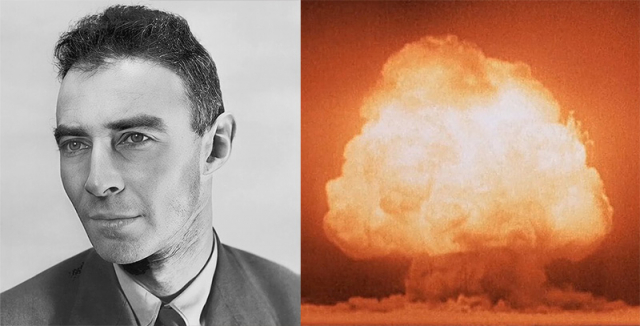Oppenheimer – a review
Paula Kitching

It is a blockbuster summer and autumn for films as the big studios seem to be hitting back following the Covid slump. Even better, rather than it just being about comic-book superheroes and supervillains, this year some of the film studios have hit on historical topics to get the audiences back.
The big summer release for history lovers is the film Oppenheimer from Christopher Nolan – starring the kind of cast that you recognise and then forget the name of because they are all so good at who they are portraying. To tell the story of a theoretical physicist and his colleagues through the US Government Committee examination of the military advisor turned scientist and politician Lewis Strauss might not sound like the most exciting of film plots – and yet it is. And like all good historical dramas we even know what happens at the end of the story, because it is a matter of historical record, and yet the film still proves to be enlightening, enticing and engaging.
The film draws together different elements of a wider story of science and in particular of J. Robert Oppenheimer, his life and the lives of those around him. It tells the story of how these men thought to create the most powerful weapon of the twentieth century and how even those behind its creation had reservations about its build.
The film teaches you about physics, about US political history and about friendships and loyalties. It doesn’t shy away from the horror that these scientists created although it does explain why some of them felt they should do it.
The history is good though I am sure others might find the occasional hole. It is particularly relevant that this film will be one of the hottest of the summer and will completely overlap the anniversaries of the atomic bomb’s use against Japan in 1945. Because for all the science and the intrigue it is a film about how humans created a weapon to kill humans on a massive scale, which undoubtedly has changed our world forever, regardless of the breakthrough theory.
Links:
- Podcast: The significance of atomic and nuclear weapons
- Podcast: Post-war Japan
- Podcast: The Campaign for Nuclear Disarmament
- Historian article: Hiroshima and Nagasaki – introducing students to historical interpretation
- Historian article: How Sweden almost became a nuclear armed state – and why it didn’t

